Chatbots in Ecommerce: Key Trends to Watch
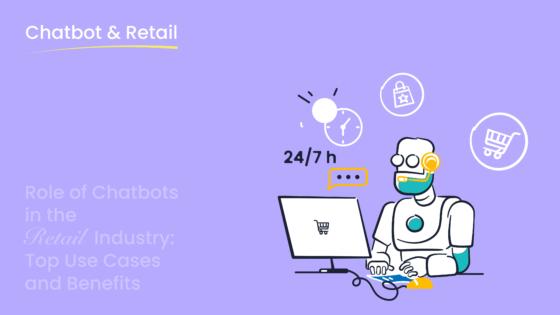
Chatbots have become a game-changer in ecommerce, transforming how you interact with brands. By 2025, they are expected to save businesses around 2.5 billion hours in customer support. Over 74% of customers already prefer chatbots over human agents for resolving their queries. These AI-powered tools can handle repetitive tasks, deliver instant responses, and even personalize your shopping experience.
One standout example is Sobot, whose chatbot enhances efficiency by solving regular queries 24/7. With the global chatbot market growing at a 24.3% annual rate, it’s clear that chatbots for ecommerce represent one of the key trends shaping the future of online retail.
Hyper-Personalization in Chatbots for Ecommerce

Leveraging Customer Data for Tailored Shopping Experiences
Retail chatbots are transforming how you shop by using customer data to create personalized experiences. These AI-powered tools analyze your browsing history, purchase patterns, and preferences to recommend products that match your needs. For example, 83% of consumers are willing to share their data if it leads to enhanced personalization. This willingness highlights the growing demand for tailored shopping experiences.
When chatbots use this data effectively, they act as personalized shopping assistants, guiding you through your journey. They can suggest complementary items, remind you of past purchases, or even notify you about discounts on products you’ve browsed before. This approach not only improves your satisfaction but also encourages repeat visits. In fact, 56% of online shoppers are more likely to return to a site offering personalized recommendations.
Sobot’s chatbot excels in this area by integrating customer profiles and preferences into its AI system. It ensures that every interaction feels unique, helping businesses build stronger connections with their customers.
Predictive Analytics for Anticipating Customer Needs
Predictive analytics is reshaping the future of retail chatbots. By analyzing historical data and current trends, chatbots can anticipate what you might need before you even ask. This capability allows brands to stay ahead of your expectations, offering solutions that feel intuitive and proactive.
For instance, AI chatbot trends show that predictive analytics can identify patterns in your shopping behavior. If you frequently purchase skincare products, the chatbot might suggest new arrivals or bundle deals tailored to your preferences. This level of foresight enhances personalization and reduces frustration, making your shopping experience smoother.
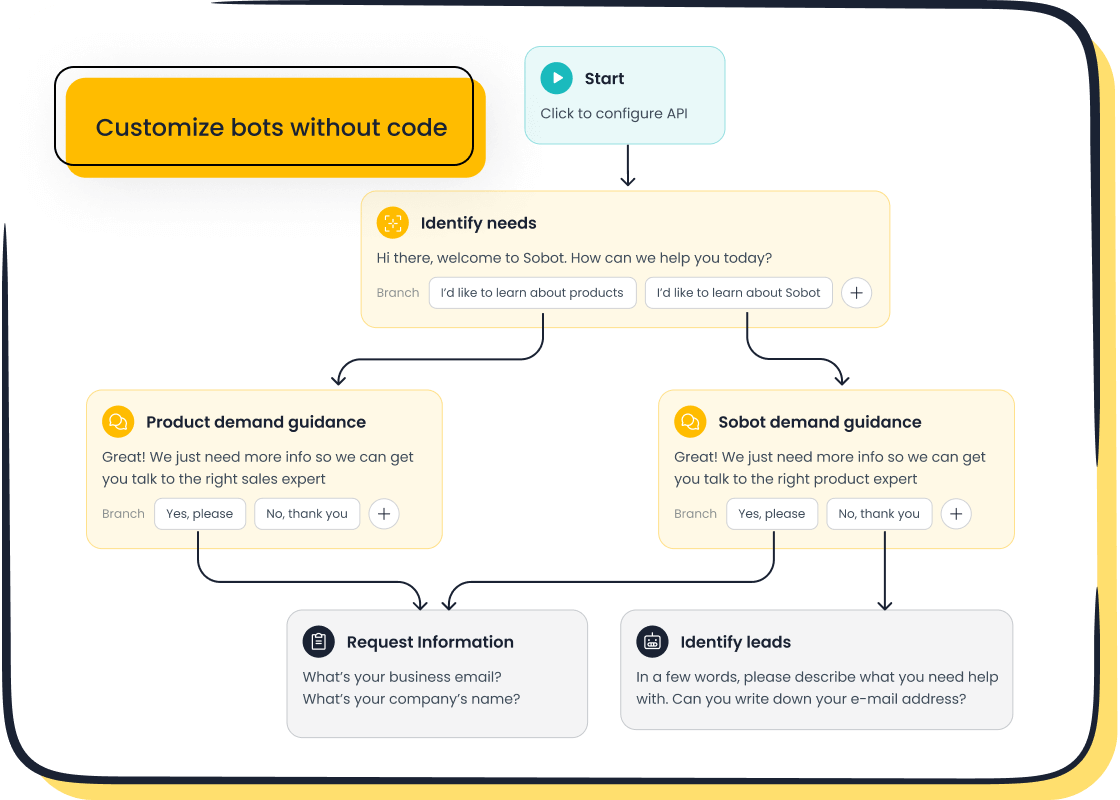
Sobot’s chatbot leverages predictive analytics to deliver real-time insights. It uses advanced algorithms to understand your intent and provide recommendations that align with your needs. This approach not only boosts conversions but also ensures you feel valued as a customer.
Real-Time Personalization with Sobot Chatbot

Real-time personalization is the cornerstone of enhanced personalization in ecommerce. Sobot’s chatbot uses cutting-edge AI to analyze your actions as they happen, ensuring every interaction feels relevant and timely. Whether you’re browsing products or seeking support, the chatbot adapts to your needs instantly.
Here’s how Sobot’s chatbot stands out:
| Advantage | Description |
|---|---|
| Boost Conversion | Analyze shoppers, predict future steps, engage them with real-time and historical data. |
| Personalized Service | Track customer profiles and preferences to tailor services effectively. |
| Drive Efficiency | Automatically answer common questions, saving time and providing immediate responses. |
| Ensure Retention | Use real-time monitoring to understand customer needs better. |
| Pre-sales Consultation | Chatbot handles queries and transfers complex issues to agents seamlessly. |
This level of personalization drives efficiency and builds trust. For example, real-time responses can increase revenue by up to 15%, according to McKinsey. Sobot’s chatbot ensures you receive instant resolutions, making it a reliable companion in your shopping journey.
By combining AI-driven insights with real-time monitoring, Sobot’s chatbot creates a seamless experience that keeps you engaged and satisfied. It’s a prime example of how consumer-facing developments are shaping the future trends in ecommerce.
Voice-Enabled Retail Chatbots: The Future of Customer Interaction
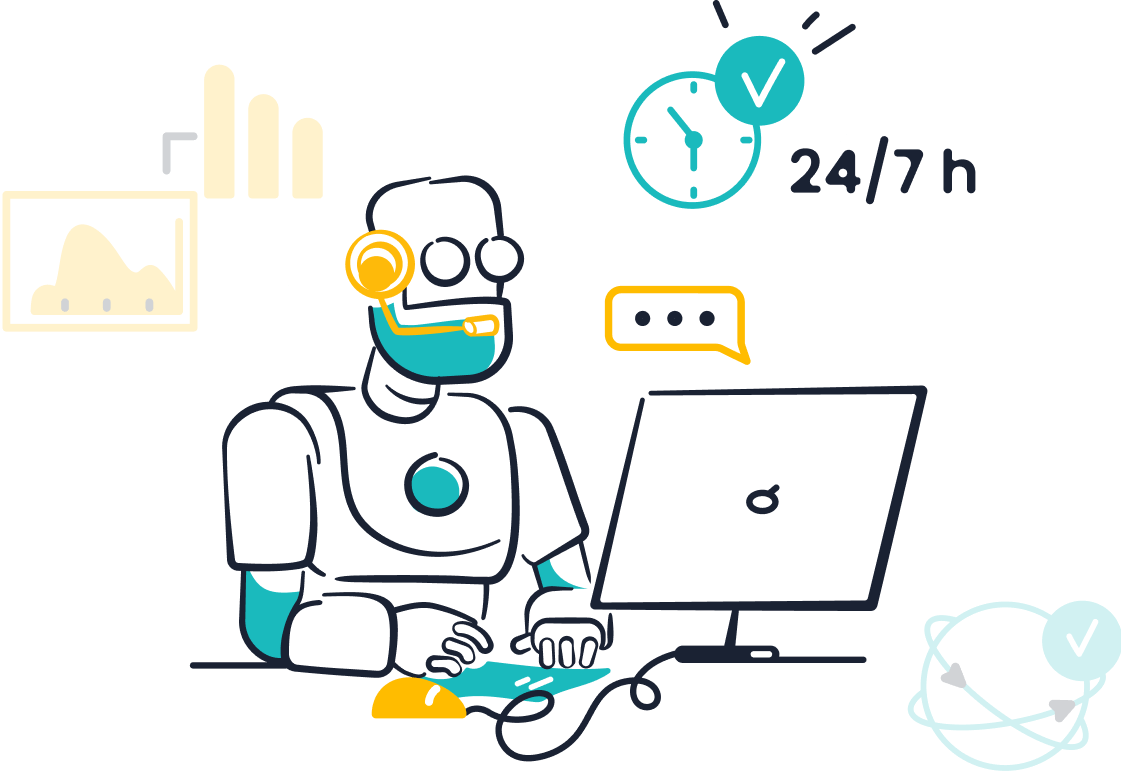
Advancements in Voice Recognition Technology
Voice recognition technology has advanced significantly, transforming how you interact with retail chatbots. In 2023, the U.S. voice and speech recognition market captured 67.4% of the revenue share, driven by innovations in AI and Natural Language Processing (NLP). These advancements enable chatbots to understand your voice commands with remarkable accuracy, making interactions faster and more intuitive.
The growing adoption of smart devices like Google Home and Amazon Alexa further highlights the importance of voice technology in retail. These tools allow you to shop, check order statuses, or even inquire about product details using simple voice commands. The European market has also seen rapid growth, fueled by the increasing demand for efficient human-machine interactions. This trend underscores the role of voice-enabled chatbots in enhancing customer experiences and shaping the future of chatbots in ecommerce.
Use Cases for Voice Bots in Ecommerce
Voice-enabled retail chatbots offer practical solutions for modern shopping needs. Here are some examples of how they can simplify your experience:
- Reordering products becomes effortless with a quick voice command.
- Chatbots confirm your preferences and check inventory during the interaction.
- Hands-free convenience aligns perfectly with today’s busy lifestyles.
A closer look at real-world applications reveals their impact. For instance:
| Case Study | Key Metrics | Results |
|---|---|---|
| LimeChat's Solutions | 300+ brands | 37% improvement in customer satisfaction, 50% boost in retention, 30% lower acquisition costs |
| Kapiva's E-Commerce GPT Bot | N/A | 12% conversion rate on WhatsApp, 70% cost reduction per conversion, 3X sales growth compared to previous chatbot |
These chatbot use cases demonstrate how voice bots streamline processes and improve customer satisfaction, making them indispensable for ecommerce businesses.
Enhancing Accessibility Through Voice Interfaces
Voice interfaces play a crucial role in making retail more accessible. They cater to diverse user needs, including older adults and individuals with disabilities. Research shows that co-designing voice user interfaces (VUIs) with older adults enhances trust and engagement. Diverse voice options also improve communication, especially in healthcare settings, by addressing unique population needs.
For example:
- Racially inclusive VUIs foster stronger connections with users.
- Professional voice personas increase credibility and trustworthiness.

Sobot’s AI chatbot integrates voice capabilities to ensure seamless interactions across retail channels. Its real-time speech recognition and multilingual support make it a valuable tool for businesses aiming to enhance accessibility. By adopting voice-enabled solutions, you can create a more inclusive shopping experience that meets the expectations of all customers.
Multilingual Capabilities in AI Chatbot Trends
Breaking Language Barriers for Global Ecommerce
Multilingual chatbots are transforming global ecommerce by bridging language gaps. They enable businesses to connect with customers in their native languages, fostering trust and improving user experiences. Research shows that 75% of customers prefer to shop in their native language, and 40% will not purchase from websites that don’t offer this option. These statistics highlight the importance of multilingual support in today’s competitive market.
| Evidence Type | Description |
|---|---|
| Trust Building | Multilingual support reduces cart abandonment and encourages repeat business. |
| Customer Retention | Companies see a 20% boost in global customer retention with multilingual chatbots. |
| Consumer Preference | 40% of consumers avoid buying in a language other than their own (CSA Research). |
| Cost Reduction | AI-driven chatbots lower customer service costs by 30% (IBM). |
Sobot’s multilingual chatbot helps businesses overcome language barriers effortlessly. It supports global expansion by enabling seamless communication with diverse audiences. This capability ensures that your customers feel understood, no matter where they are.
AI-Powered Language Translation in Sobot Chatbot
AI-powered language translation is a game-changer for ecommerce. Sobot’s chatbot automatically detects and responds in multiple languages, making it easier for businesses to enter new markets. For example, 62% of companies face language challenges when expanding into regions like Europe, Southeast Asia, and Latin America. Sobot addresses this issue by offering real-time translation, eliminating the need for language expertise.
This feature not only enhances customer satisfaction but also boosts conversions. Customers receiving service in their preferred language are 35% more likely to complete purchases and 50% more likely to become repeat buyers. By integrating AI-powered translation, Sobot ensures that your business can cater to a global audience without compromising on quality or efficiency.
Examples of Multilingual Chatbots in Action
Real-world examples demonstrate the impact of multilingual chatbots. In India, the rise of non-English internet users has created a demand for vernacular support. Haptik developed a Hindi-language chatbot for Dr. Lal PathLabs, addressing this need. The bot even understood “Hinglish,” a mix of Hindi and English, ensuring natural communication.
Sobot’s chatbot offers similar capabilities, supporting over 50 languages and adapting to regional nuances. It allows businesses to display language options prominently, ensuring users can switch languages effortlessly. This approach improves engagement and reduces misunderstandings, making your ecommerce platform more inclusive.
By leveraging multilingual chatbots, you can break language barriers, enhance customer satisfaction, and drive global growth. Sobot’s AI-powered solutions make this transition seamless, empowering your business to thrive in diverse markets.
Integration with Advanced AI Agents: The Future of Chatbots
Combining Chatbots with Generative AI Models
Generative AI models are revolutionizing the way chatbots interact with users. By combining these models with retail chatbots, businesses can deliver more dynamic and human-like conversations. This integration allows chatbots to generate contextually relevant responses, making interactions feel natural and engaging. For example, studies show that hybrid chatbots powered by generative AI improve outcomes in industries like healthcare, reducing hospital readmissions for chronic disease patients.
In retail, this technology enhances customer support by providing detailed product recommendations and resolving complex queries. Sobot’s chatbot leverages generative AI to analyze customer intent and deliver precise answers. This capability ensures that your customers receive accurate information, improving satisfaction and loyalty. As the AI revolution continues, integrating generative AI models into ecommerce chatbot solutions will become essential for staying competitive.
Seamless Handoffs Between Chatbots and Human Agents
A seamless transition between chatbots and human agents is critical for maintaining customer satisfaction. While chatbots handle routine queries efficiently, human agents excel at managing complex issues. Research highlights that combining these two approaches improves the overall customer experience. For instance:
- Chat history access prevents customers from repeating themselves, streamlining the process.
- CTI-enabled escalation ensures faster and more accurate resolutions.
- Providing agents with chat transcripts allows them to pick up where the chatbot left off.
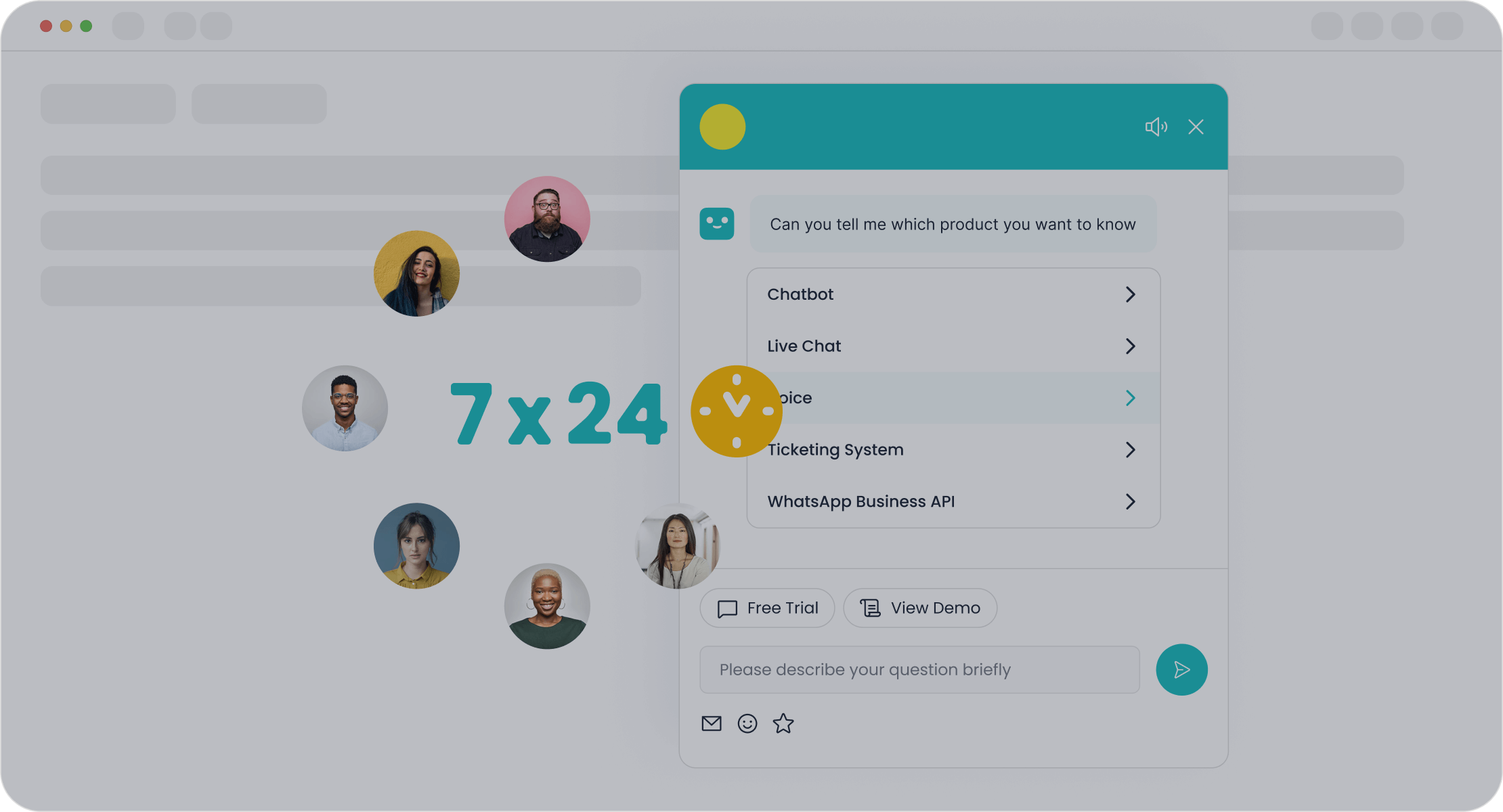
Sobot’s chatbot excels in this area by integrating with support platforms to enable smooth handoffs. When a query requires human intervention, the chatbot transfers all relevant details to the agent. This approach reduces confusion and ensures a consistent experience. By adopting such hybrid systems, you can enhance service quality and build trust with your customers.
AI-Driven Insights for Continuous Improvement
AI-driven insights play a pivotal role in refining chatbot performance. Advanced analytics provide a clear picture of user interactions, helping you identify strengths and weaknesses. For example:
| Benefit | Description |
|---|---|
| Continuous Improvement | AI-driven analytics refine chatbot responses over time. |
| Efficiency | Automating repetitive tasks saves time and resources. |
| Insightful Analytics | Deep insights into user behavior enhance personalization. |
| Proactive Issue Resolution | Monitoring identifies and resolves issues before they escalate. |
Sobot’s chatbot uses these insights to optimize its knowledge base and improve response accuracy. By analyzing real-world feedback, it adapts to changing customer needs, ensuring consistent performance. This proactive approach not only enhances user satisfaction but also reduces the workload on human agents. As the future of chatbots evolves, leveraging AI-driven insights will be key to maintaining a competitive edge in retail.
Practical Applications of Chatbots in Ecommerce
Streamlining Payment Processing and Checkout
Retail chatbots are revolutionizing the way you complete purchases. By integrating with payment systems, these AI-powered tools simplify the checkout process, ensuring a seamless experience. For instance, chatbots can guide you through payment steps, confirm your order details, and even suggest faster payment methods. This reduces friction and enhances your overall satisfaction.
AI chatbots are predicted to save the financial sector $7.3 billion by 2023. They achieve this by facilitating real-time interactions, offering instant assistance, and providing personalized recommendations. A chatbot integrated with Stripe, for example, minimizes transaction steps, leading to higher conversion rates and increased sales. A smooth payment experience not only influences your purchase decisions but also encourages repeat business.

Sobot’s chatbot excels in streamlining payment processes. It integrates with various platforms to provide real-time support, ensuring you complete transactions effortlessly. This capability makes it an essential tool for businesses aiming to optimize their checkout systems.
Enhancing Customer Support with Sobot Chatbot
Customer support is a critical aspect of your shopping journey, and retail chatbots are transforming how businesses address your needs. These tools provide instant responses to common queries, reducing wait times and improving your experience. They also gather valuable data to personalize interactions, ensuring you feel valued as a customer.
Research highlights that AI chatbots significantly enhance customer interaction by improving response times and streamlining support processes. Sobot’s chatbot takes this a step further by offering 24/7 availability and multilingual support. Whether you need help tracking an order or resolving an issue, the chatbot ensures you receive accurate and timely assistance.
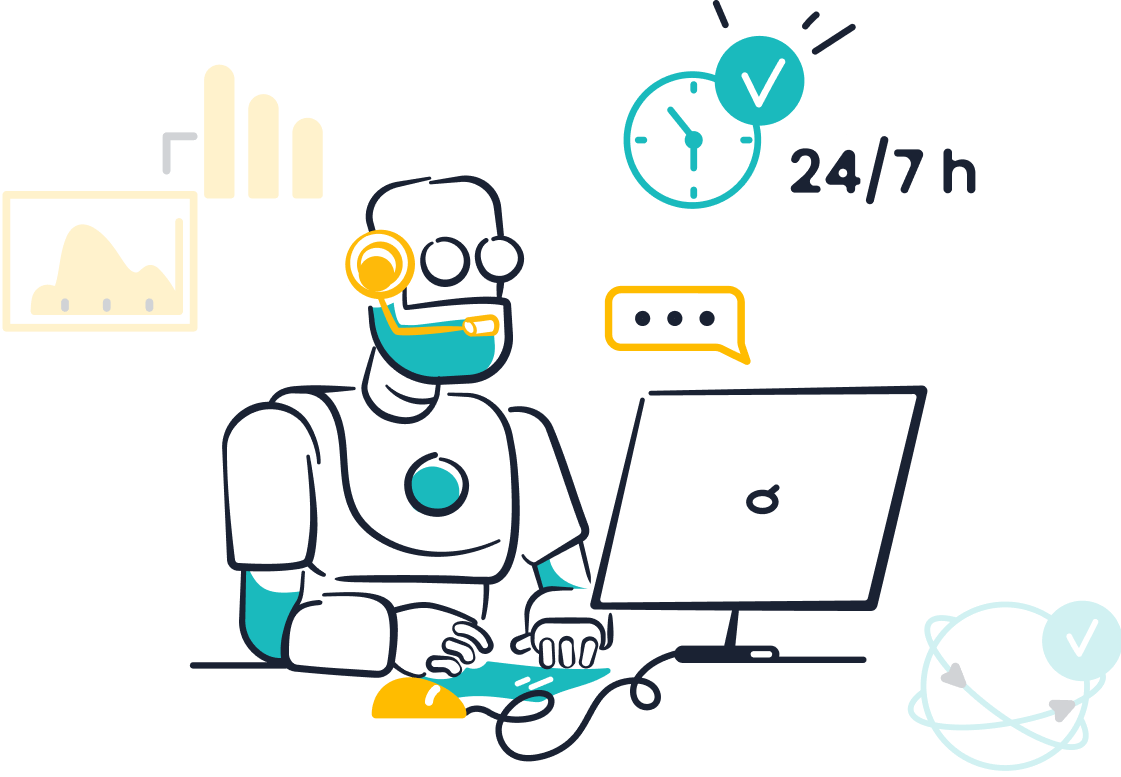
For example, OPPO, a leading smart device brand, implemented Sobot’s chatbot to handle repetitive queries. This allowed human agents to focus on complex issues, resulting in an 83% resolution rate and a 94% positive feedback rate. By adopting such solutions, businesses can enhance customer satisfaction and build loyalty.
Driving Predictive Commerce and Upselling Opportunities
Predictive commerce is reshaping the retail landscape, and chatbots play a pivotal role in this transformation. By analyzing your behavior and preferences, these tools anticipate your needs and offer tailored product recommendations. This not only enhances your shopping experience but also drives upselling and cross-selling opportunities.
AI chatbots provide immediate upsell suggestions based on your inquiries, guiding you toward higher-value products. They use advanced algorithms to analyze your behavior and recommend items that align with your interests. Virtual agents also leverage customer data to suggest related products, increasing sales and revenue for businesses.
Sobot’s chatbot stands out in predictive commerce. It uses real-time insights to understand your intent and deliver personalized recommendations. For instance, if you frequently purchase skincare products, the chatbot might suggest complementary items or bundle deals. This proactive approach ensures you discover products that meet your needs, enhancing your satisfaction and boosting conversions.
Benefits of Adopting Advanced Chatbot Technologies
Cost Savings Through Automation
Retail chatbots are transforming how businesses manage costs. By automating repetitive tasks, they reduce the need for human intervention, saving both time and money. For example, chatbots can handle common inquiries like order tracking or return policies, allowing human agents to focus on complex issues. This shift not only improves efficiency but also cuts operational expenses significantly.
A closer look at the numbers reveals the impact of automation:
| Metric | Before Automation | After Automation | Savings |
|---|---|---|---|
| Average Handle Time per Ticket | 20 minutes | < 1 minute | Significant |
| Cost per Ticket | $15 | $3 | $12 savings |
| Total Monthly Cost for 1440 FCR | $21,000 | $4,320 | $17,280 savings |
| Annual Cost Savings | N/A | N/A | $207,360 |
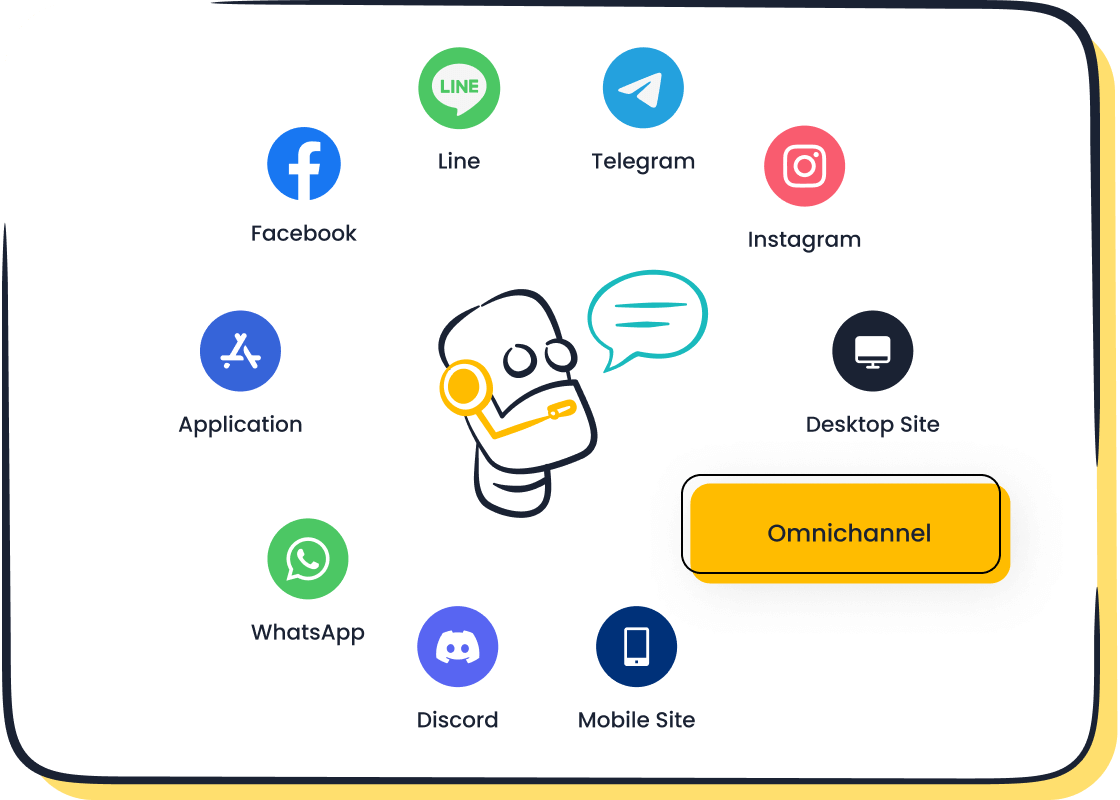
Sobot’s chatbot exemplifies this efficiency. It operates 24/7, triaging queries autonomously and saving up to 50% on agent costs. This makes it an invaluable tool for retail businesses aiming to optimize their budgets.
Improved Customer Experience and Satisfaction
Retail chatbots enhance your shopping journey by providing instant, personalized support. They respond to inquiries in seconds, reducing wait times and frustration. For instance, Spotify reduced its average response time from 24 hours to just 8 minutes using a chatbot, significantly boosting customer satisfaction.
Personalization also plays a key role. Sephora’s chatbot offers tailored makeup advice based on your preferences, creating a more engaging experience. Sobot’s chatbot takes this further by integrating customer profiles, ensuring every interaction feels unique. Its multilingual capabilities allow businesses to connect with diverse audiences, fostering trust and loyalty.
| Evidence Type | Statistic/Insight | Impact on Customer Satisfaction |
|---|---|---|
| Response Time Improvement | Spotify reduced average response time from 24 hours to 8 minutes with a chatbot | Faster responses lead to higher customer satisfaction |
| Efficiency | Vodafone's TOBi resolved 70% of inquiries without human intervention | Increased efficiency enhances overall customer experience |
| Personalization | Sephora's chatbot offers tailored makeup advice based on customer data | Personalized service improves customer engagement |
| Consistency | Chatbots provide consistent responses every time | Builds trust and reduces frustration for customers |
| 24/7 Availability | Airlines like JetBlue offer instant support at any hour | Round-the-clock assistance increases customer satisfaction |
Operational Efficiency and Scalability
Retail chatbots enable businesses to scale operations without compromising quality. They handle high volumes of interactions effortlessly, ensuring consistent service during peak periods. For example, Würth Italia’s virtual assistant managed 96% of chats, demonstrating the scalability of AI-powered solutions.
Sobot’s chatbot integrates seamlessly with CRM systems, streamlining workflows and automating data entry. This reduces manual effort and enhances operational efficiency. Additionally, its AI-driven insights help businesses identify trends and optimize performance.
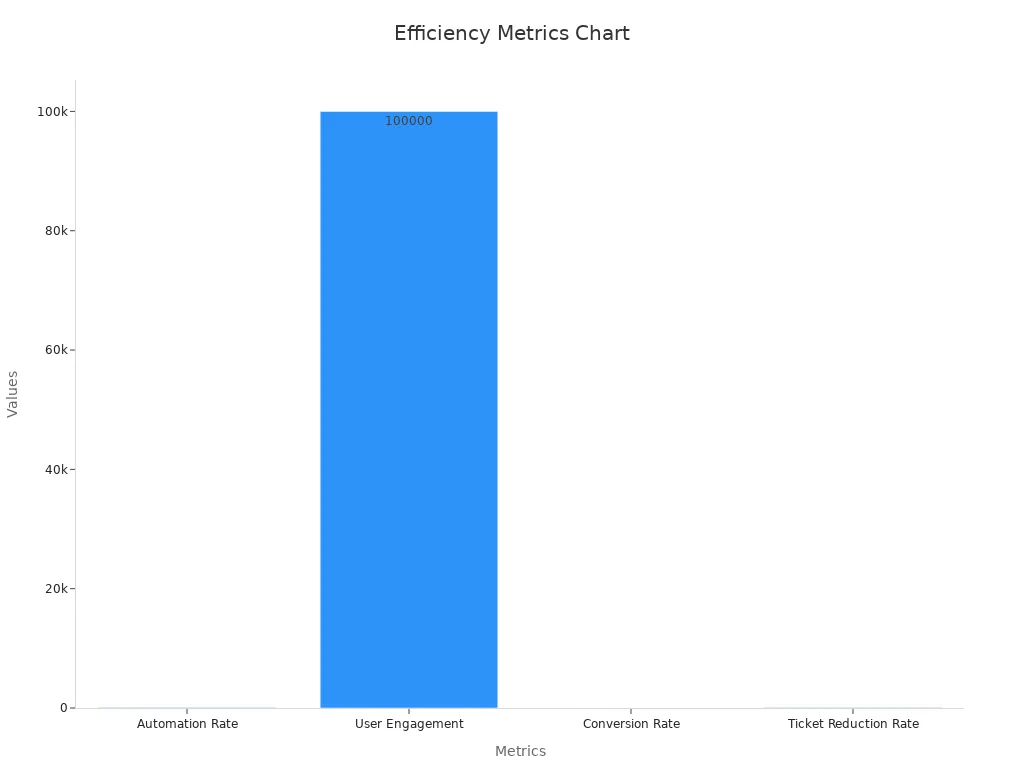
By adopting advanced chatbot technologies, you can improve response times, reduce costs, and scale your retail operations effectively. The AI revolution is here, and tools like Sobot’s chatbot are leading the way in transforming customer interactions.
Challenges in Implementing Chatbot Innovations
Addressing Data Privacy and Security Concerns
When adopting chatbot innovations, ensuring data privacy and security becomes a top priority. Users often worry about how their personal information is handled. Transparency and trust are essential to address these concerns. For example:
- User Trust: Many users hesitate to share sensitive data due to fears of misuse. A user-centric approach that prioritizes transparency can help build confidence.
- Data Security: Protecting customer information requires robust measures like end-to-end encryption and compliance with regulations such as GDPR.
Sobot’s chatbot solutions excel in this area by offering features like data encryption and continuous encrypted backups. These measures ensure that your customers’ information remains secure, fostering trust and loyalty.
Overcoming Technological Limitations
Chatbots, while powerful, face certain technological challenges that can impact their effectiveness. Here’s a closer look at some common limitations:
| Limitation | Description |
|---|---|
| Inability to handle complex issues | Chatbots struggle with complex customer problems due to limited critical thinking and creativity. |
| Absence of human connection | Customers often prefer human interaction, and the lack of it in chatbots can lead to dissatisfaction. |
| Lack of empathy | Chatbots cannot replicate genuine emotional intelligence, making it harder to provide meaningful support. |
| Negative customer perceptions | Some users distrust chatbots, viewing them as unhelpful or impersonal, which can harm brand relationships. |
Sobot addresses these challenges by integrating advanced AI capabilities, such as generative AI models, to improve chatbot responses. These enhancements make interactions feel more natural and engaging, helping you overcome customer skepticism.
Ensuring Seamless Integration with Existing Systems
Integrating chatbots with your current systems can be a complex process. Challenges often arise in areas like data synchronization, security, and scalability. For instance:
- Data Synchronization and API Integration: Ensuring smooth data flow between chatbots and existing databases requires robust APIs. Without them, communication gaps can occur.
- Security and Compliance Considerations: Protecting sensitive data during integration is critical. Regular security audits and encryption protocols help mitigate risks.
- Scaling and Performance Management: As chatbot usage grows, your infrastructure must handle increased loads. Cloud-based solutions and load balancing can maintain performance.
Sobot simplifies this process by offering seamless integration with CRM systems and other enterprise tools. Its omnichannel support ensures that your chatbot works effortlessly across platforms, reducing friction and improving efficiency.
By addressing these challenges, you can unlock the full potential of chatbot innovations, creating a more secure, reliable, and scalable solution for your business.
Ecommerce chatbots are transforming retail by offering hyper-personalization, voice capabilities, and multilingual support. These innovations help businesses enhance customer satisfaction, streamline operations, and gain a competitive edge. The global chatbot market is expected to grow over six times by 2025, reaching $1.25 billion, while retail chatbots will contribute to $11 billion in annual cost savings across industries. With the ecommerce market projected to hit $4.32 trillion in revenue by 2025, adopting advanced chatbot technologies is essential for staying ahead of future trends. Tools like Sobot’s chatbot empower businesses to meet consumer expectations, ensuring success in the evolving retail landscape.
FAQ
What are the key benefits of using ecommerce chatbots?
Ecommerce chatbots save time and money by automating repetitive tasks. They improve customer satisfaction with instant responses and personalized recommendations. For example, Sobot’s chatbot boosts productivity by 70% and reduces service costs by 50%, making it a valuable tool for businesses aiming to scale efficiently.
How do chatbots enhance personalization in ecommerce?
Chatbots analyze customer data to provide tailored shopping experiences. They recommend products based on browsing history and preferences. Sobot’s chatbot excels in this area by integrating customer profiles, ensuring every interaction feels unique and relevant, which increases customer retention and satisfaction.
Can chatbots handle multilingual support effectively?
Yes, multilingual chatbots bridge language gaps, enabling businesses to connect with global audiences. Sobot’s chatbot supports over 50 languages, offering real-time translation. This feature ensures seamless communication, helping businesses expand into new markets while improving customer satisfaction and trust.
Are chatbots secure for handling customer data?
Modern chatbots prioritize data security with features like encryption and compliance with regulations such as GDPR. Sobot’s chatbot ensures customer information remains safe with continuous encrypted backups, fostering trust and confidence in its solutions.
How do chatbots improve operational efficiency?
Chatbots streamline operations by automating tasks like order tracking and FAQs. Sobot’s chatbot operates 24/7, reducing agent workload and saving up to 50% on costs. This efficiency allows businesses to focus on complex issues, improving overall productivity and customer experience.
See Also
Enhancing Customer Satisfaction Through E-commerce Chatbots
Best Live Chat Tools for E-commerce This Year
Increasing Sales with E-commerce Live Chat Solutions
